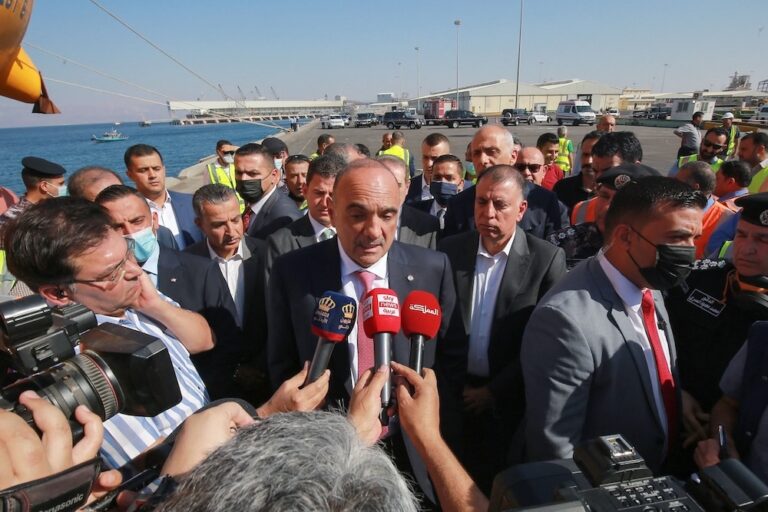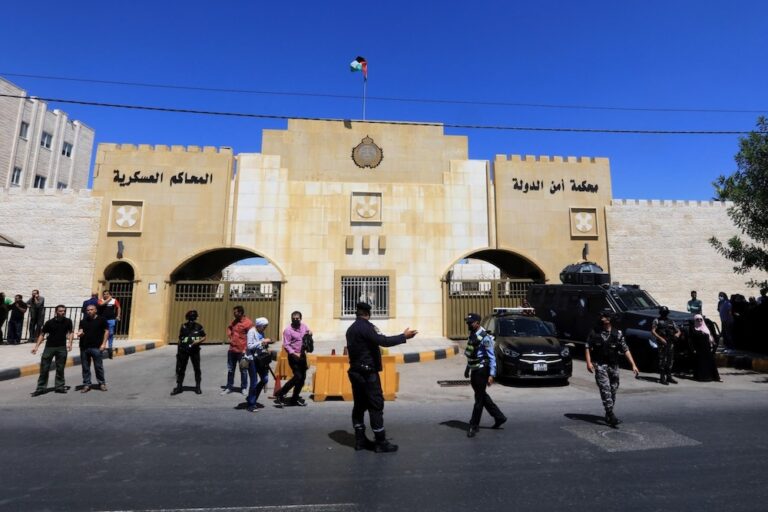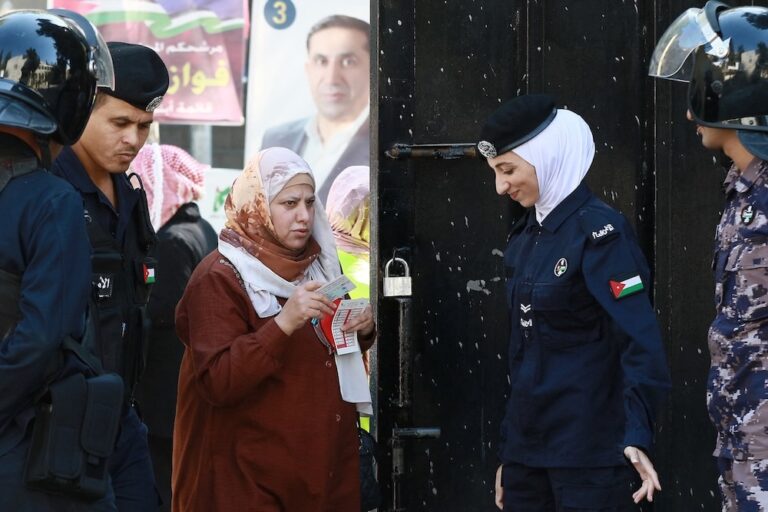Ghazi Mrayat's detention was in connection with a July 6 report he wrote for Al-Rai which cited a "well-informed source" as saying that Jordanian security services had foiled an Iranian-backed terror plot.
This statement was originally published on cpj.org on 9 July 2015.
A Jordanian journalist has been given 15 days in jail after being accused of breaking a recent ban on coverage of a terror plot, according to the journalist’s employer and other news reports. The Committee to Protect Journalists condemns the imprisonment and calls on authorities to release Ghazi Mrayat immediately.
The state-owned daily Al-Rai reported that Jordan’s state security court in the capital, Amman, ordered Mrayat, its reporter, to be jailed for 15 days. The court said Mrayat’s reporting had exposed the Kingdom and its citizens to danger and damaged the Kingdom’s standing with an unidentified foreign country, according to the paper. Mrayat has been held at the Marka Center for Corrections and Rehabilitation since Wednesday.
Mrayat’s detention was in connection with a July 6 report he wrote for Al-Rai which cited a “well-informed source” as saying that Jordanian security services had foiled an Iranian-backed terror plot. The article, which was widely cited by international media, claimed that a suspect of Norwegian and Iraqi citizenship had been arrested with nearly 100 pounds of explosives. The article is no longer accessible on Al-Rai’s website.
On July 8, the newspaper published a follow-up article, which Mrayat also wrote, that included more details on the plot. The Iranian government has since denied any involvement, according to news reports.
According to the official Petra news agency, the state security court issued a ban on reporting on the plot on July 6, the day the suspect was first brought to court. Tareq Momani, editor-in-chief of Al-Rai and head of the Jordanian Press Association, denied receiving any notice from the Jordanian government banning coverage of the plot, news reports said.
CPJ could not find an official statement about the ban on the website of the Jordanian Media Commission, which is responsible for overseeing the Jordanian press. CPJ’s calls and emails to the commission were not immediately returned.
Prime Minister Abdullah Ensour spoke at the International Press Institute World Congress in Jordan in May 2013, a year after amendments to the Press and Publications Law were passed. In his speech, Ensour said that journalists “cannot be arrested or jailed for speech-related offenses, and can only be tried by specialized media courts presided over by specialized judges.”
“The Jordanian government should immediately release Ghazi Mrayat, who merely did his job by reporting on a story of critical importance to the Jordanian public,” said CPJ Middle East and North Africa Program Coordinator Sherif Mansour. “The Jordanian government is again breaking its promise to never jail journalists or prosecute them in front of the state security court for their reporting.”
At least three other journalists have been imprisoned on orders of the state security court this year, according to CPJ research. In January 2015, Hashem al-Khalidi, the owner of Saraya News, and the site’s editor-in-chief, Seif Obeidat, were arrested for “aiding terrorism” and “spreading false news” in connection with a report on the website that claimed an imprisoned Iraqi militant would be released in a hostage negotiation deal, according to news reports. Al-Khalidi and Obeidat were released on bail in March 2015, news reports said.
In April, opinion writer Jamal Ayyoub was arrested after he criticized Operation Decisive Storm, the bombing campaign by a Saudi-led coalition including Jordan against Houthi forces in Yemen. A court ordered Ayyoub to be held for 15 days pending investigation into accusations that he disrupted the kingdom’s relationships with foreign states. CPJ could not determine if Ayyoub is still in prison or if he faces any charges.


